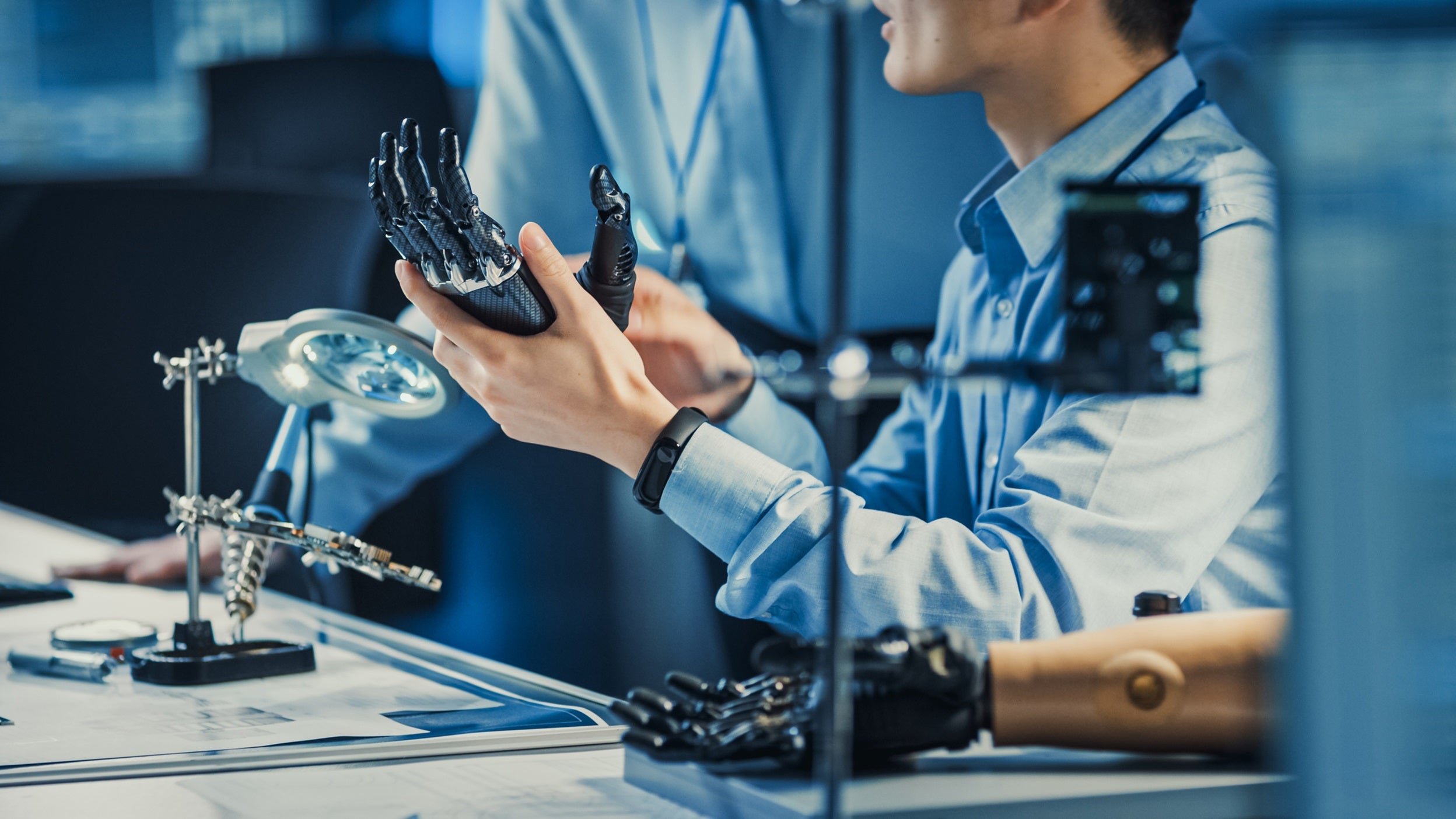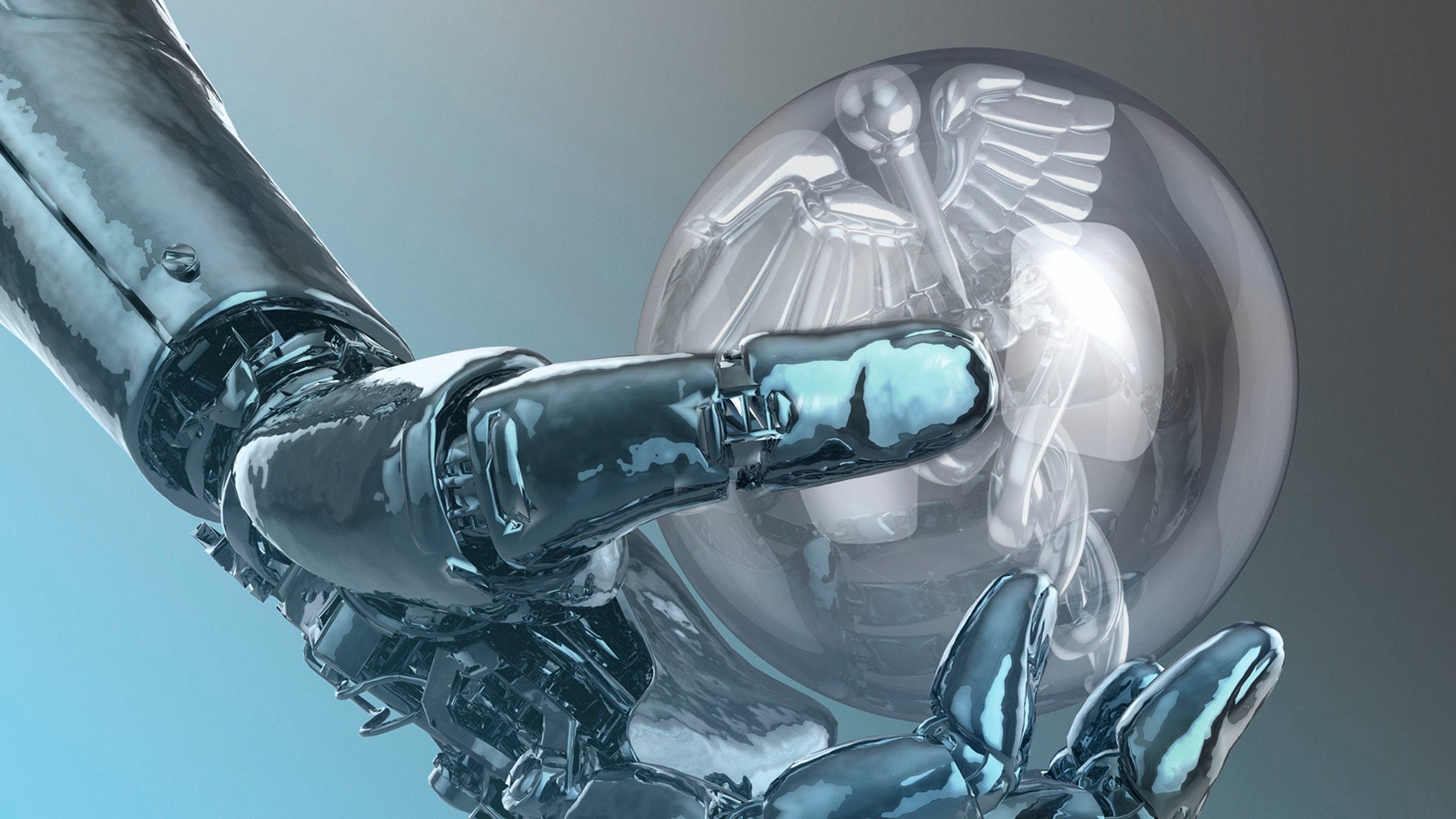.jpg)
Extending life
Human ingenuity is clawing back territory from the Grim Reaper. That comes with a new set of challenges for our species.

You can look at the revolution in artificial intelligence (AI) in two ways—as two alternate universes, almost. One, where machines support and enhance the human. Star Trek, if you will. The other, where access to technology has created an impassable divide between the haves and have-nots, more like the dystopian film Elysium.
Technology is certainly taking us closer to an automated future, whatever that may be. AI may have started by replacing low-skilled call centre jobs with rather clunky bots, but things are becoming more sophisticated.
Take the field of medicine, for example. To qualify as a diagnostician takes people years of training, and is often an arduous, time-consuming process. What’s more, in many areas, demand for this expertise outstrips supply, putting the healthcare system under strain. But where diagnostic information can be digitised, machines can step in to take the load. "AI is being used to help solve complex societal challenges, such as climate change, healthcare and food poverty," says Robert Troy, Ireland’s minister for trade promotion, digital and company regulation. The advantage of an algorithm is that it can draw conclusions from the data in a fraction of a second. And, unlike a flesh-and-blood expert, machine-learning expertise can be reproduced potentially infinitely.
Robert Troy, Ireland’s minister for trade promotion, digital and company regulationAI is being used to help solve complex societal challenges, such as climate change, healthcare and food poverty.
Mr Troy is optimistic about the wider ability of AI to transform society. "Globally, it is estimated that the application of AI could double economic growth by 2035," he says. One study estimates that AI could contribute up to $15.7trn globally in 2030, more than the current output of China and India combined.1

Kevin Roose, author of Futureproof: 9 Rules for Humans in the Age of Automation, highlights the ways that AI is shaping work, such as "labour displacement that we traditionally think of when we think about automation", although he says this is happening in a broader swath of industries than it traditionally has, through to white-collar workplaces. What’s less recognised is the supplanting of management functions: "There’s now a whole industry of worker surveillance and performance tracking software, and in some cases automatically making decisions about hiring and firing." Overall, this could lead to the replacement of 47% of current job functions by 2034.2
Where does this leave work, as we traditionally conceive it? Two centuries ago, England’s Luddites destroyed the emergent machinery of the first industrial revolution, as a way of combating what they saw as the replacement of manual jobs. Are human workers becoming a thing of the past?
Not really, says Mr Troy, as "much of the disruption caused by AI will result in changes to job roles, tasks and distribution". Your doctor, for instance, won’t necessarily be replaced by a robot. "AI-based systems will augment physicians and are unlikely to replace the traditional physician–patient relationship," according to one recent study published in PeerJ.
Marcus du Sautoy, Oxford Simonyi Professor for the Public Understanding of Science, agrees with Mr Troy: "We are going to see AI encroach on an increasing number of white-collar jobs, but as with all these revolutions, new jobs appear."
.jpg)
The abilities of machines can enhance what it means to be human, not constrain it. Professor du Sautoy gives the example of the data curator, calling it "almost a new type of artist". "Algorithms learn from data," he says. "You give it data, it will go in one direction, you give it different data, it goes in another." The still central role of human agency is to understand that process, and how to manipulate it to make it do what you want it to do—something that is a new and very human skill set. So, although AI can mimic artistic styles, from poetry to painting, it functions mostly in an assistant role, rather than replacing the human genius in the loop. The ghost in the machine has yet to become the machine.
Marcus du Sautoy, Simonyi Professor for the Public Understanding of Science, University of OxfordWe thought the one thing that will be left to do is to write our symphonies and our novels, and now AI is going to be able to do that as well.
Says Professor du Sautoy: "We thought the one thing that will be left to do is to write our symphonies and our novels, and now AI is going to be able to do that as well." He sees a positive aspect to this, as the imperative to be creative can be terrifying. It’s a high entry level to taking that leap into writing or painting. "There’s something quite exciting about the power of these tools to democratise something that before was quite an elitist activity," he adds. AI banishes the terror of the blank page. It’s an interesting idea.

Mr Roose predicts the rise of a two-tier economy: the machine economy and the human economy. The products of the former will become very cheap. "AI will enable the people who run those companies to strip out all the inefficiency and waste," he says.
Conversely, the human economy will consist of people who are not so much making things and providing services as they are creating feelings and experiences, examples being healthcare workers, teachers and artists. And why stop there? Even people you wouldn’t think of as being irreplaceable, such as bartenders, baristas and flight attendants, fit the bill because they’re about making people feel comfortable. It’s the human touch that is so important.
Mr Roose reckons that this will increasingly see hyper-scale tech companies create higher-touch versions of their services: for example, a luxury version of Netflix, where film curators pick out movies for you. "There will be layers within these companies where users pay for human interaction on top of the base layer," says Mr Roose. He predicts a new generation of companies that scale human connection without dehumanising it.
Does this mean that the tech leviathans will dominate everything? Professor du Sautoy doesn’t think so—but he does believe changes need to be made to ensure an open field. "You don’t need huge companies to analyse this data," he says. "It’s about having clever algorithms to search data allowing smaller players to come into the field."
However, he cautions, "If you don’t have access to data, you’re completely stuffed, frankly." There are already examples of this in open source data—for instance, open banking regulation, which compels large banks to share their customer financial information. This has enabled disruptors in fintech, such as UK challenger banks Starling and Monzo, each now valued at more than £1bn, to enter the playing field.
There are, of course, strong vested interests with this. But that’s also true of ‘traditional’ financial services, and yet the field was still opened. Could the same be done with AI?
.jpg)
Human ingenuity is clawing back territory from the Grim Reaper. That comes with a new set of challenges for our species.

Investors are focusing too much on certain sustainability areas, without paying attention to the broader—or even counterproductive—effects.

How can we ensure that the combination of slowing growth and longer lifespans won’t lead to poorer lives?
The value of investments and any income will fluctuate (this may partly be the result of exchange rate fluctuations) and investors may not get back the full amount invested.
This document is marketing material and is not intended as a recommendation to invest in any particular asset class, security or strategy. Regulatory requirements that require impartiality of investment/investment strategy recommendations are therefore not applicable nor are any prohibitions to trade before publication. The information provided is for illustrative purposes only, it should not be relied upon as recommendations to buy or sell securities.
Where individuals or the business have expressed opinions, they are based on current market conditions, they may differ from those of other investment professionals, they are subject to change without notice and are not to be construed as investment advice.
Produced by (E) BrandConnect, a commercial division of The Economist Group, which operates separately from the editorial staffs of The Economist and The Economist Intelligence Unit. Neither (E) BrandConnect nor its affiliates accept any responsibility or liability for reliance by any party on this content.